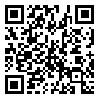سه شنبه 20 آبان 1404
[Archive]
چکیده: (59 مشاهده)
Joint attention (JA) deficits are frequently one of the earliest indicators of Autism Spectrum Disorder (ASD), making them a crucial focus for early interventions. Virtual Reality (VR) technology has emerged as a promising tool in this area, offering immersive environments that could enhance JA skills in children with ASD. This study protocol outlines a randomized controlled trial designed to assess the effectiveness of a VR-based intervention for improving JA skills in school-aged children with autism. The trial will involve children aged 6 to 12 years, who will be randomly assigned to either a treatment group, receiving VR therapy in addition to standard interventions, or a control group, receiving sham therapy plus standard interventions. The VR intervention consists of specialized scenarios delivered through a VR headset, with JA skills and social-communication behaviors being the primary and secondary outcomes, respectively. JA skills will be measured using the Childhood Joint Attention Rating Scale (C-JARS) and a cross-validation tool within the VR environment, while social-communication behaviors will be assessed using the Gilliam Autism Rating Scale, Third Edition (GARS-3). The study began recruiting participants in October 2023, with results expected by early 2025. This trial aims to provide valuable insights into the potential of VR as a supplemental therapy for enhancing JA skills and improving social-communication behaviors in children with ASD.
| بازنشر اطلاعات | |
 |
این مقاله تحت شرایط Creative Commons Attribution-NonCommercial 4.0 International License قابل بازنشر است. |

